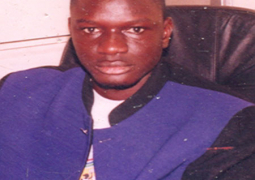A three-day workshop on implementation of the food security through commercialization of agriculture (FSCA) projects within the sub-region is underway at the Ocean Bay Hotel,Cape Point Bakau.
The retreat, which started yesterday, was organised by the Food and Agriculture Organization (FAO).
Speaking at the opening ceremony, the deputy permanent secretary of the Ministry of Agriculture, Sheriff Bojang, welcomed participants from the sub-region on behalf of the Gambian government.
Mr Bojang described the training on beneficiary evaluation as very important and timely, saying it is important and timely because monitoring and evaluation of development projects "is very weak and is often sidelined and poorly documented".
Some, however, do attempt to improve monitoring by investing in the development of long list of indicators, which are often heavy to collect and rarely analysed both of which require significant amount of resources and time, he said.
"Of recent, donor agencies have reoriented projects towards generating better knowledge management systems such as Results and Impact Monitoring Systems (RIMs), impact assessment guidelines, robust work plans and budgets, and project completion reports," he said.
Mr Bojang added that these systems suffer from lack of ownership and often not sufficiently endorsed by the project team who usually perceive them as separate requirements to satisfy donors and are therefore not integrated.
He noted that development project generate vast results and impacts in food security for the rural poor but added that these often remain unknown due to a lack of proper tackling systems capacity.
"There is need to improve capacity among project teams and stakeholders involved in the various stages of project implementation so as to ensure commitment, ownership, follow-up and feedback performance," he said.
Mr Bojang also stressed the need for project teams to be trained to identify and know the chain of expected results which will help to improve efficiency through proper selection of indicators that are realistic in terms of feasibility of collection and cost.
"The Food Security project emphasised knowledge sharing with other government and donors so as to ensure synergy and complementarities," he also said, adding that evaluation of "these projects is therefore a process of creating results as well as a mechanism for identifying and assessing those results".
Dr Babagana Ahmadu, FAO Representative to The Gambia, said the aim of the workshop is to assess the project, which is valued at US$2 million.
"The project is currently focusing on 20 communities in Central and Lower River Regions," he noted, saying he hopes to decentralize it throughout the country before the end of its three-year implementation period.
Dr Ahmadu added that the experts that are brought from other countries in the sub-region to the workshop is to get them to share experiences with other participants.
He also disclosed that an expert from





